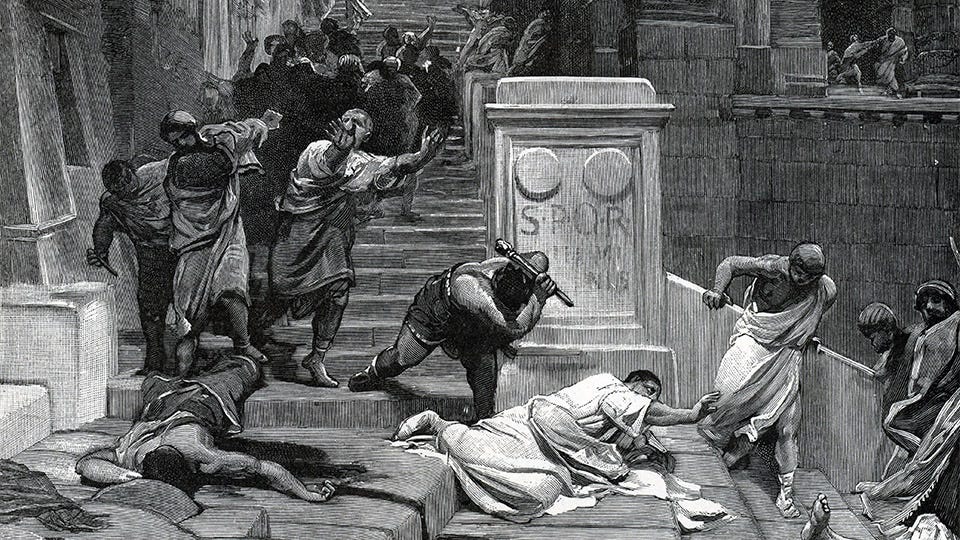The Unwritten Rules Break First

Welcome to The Unwritten Rules Break First, a series exploring the ancient Roman Republic’s lengthy collapse and its modern-day parallels. Below you will find my preface to this work, as well as links to other sections.
Why I Wrote This Series
This series is a warning.
In the popular consciousness, we tend to focus on democratic regimes that collapse suddenly—think interwar Germany. The truth is not as simple. Many regimes undergo a period of ‘slow rot’ that erodes their institutions before ultimately collapsing the state, oftentimes right under our noses. It is this phenomenon that I want to examine in this series, through the lens of the Late Roman Republic.
Why Rome? Simple. In the long history of the world, no country had a more celebrated democratic tradition than in Rome. Unlike many modern democracies that quickly collapsed (Weimar Germany, pre-Putin Russia, etc.), the Romans built a strong democratic tradition that helped the Republic endure for 500 years. This makes its collapse even more interesting, as it could provide clues for how long-lasting regimes collapse and how to preserve them. In a polarized world with many durable democracies on the brink, such clues will be crucial to understanding our current moment.
Why now? As an American, I fear our country is traveling the same path Rome did on its way to collapse: small abuses committed by political factions leading to wider societal breaches, desensitizing and normalizing undemocratic behavior. We see this behavior manifested in increased political violence, heated rhetoric, and intense polarization. We see it when our leaders discredit institutions, and both sides view each other as enemies. But it is also my belief that we have not fallen off the cliff yet. There is still time to course correct, and I believe people must understand this phenomenon before it is too late.
I am not an expert in Roman history. I am merely a college student with a passion for politics and a willingness to find historical parallels to our current moment. Allegedly, Mark Twain once said that “History doesn’t repeat itself, but it often rhymes.” This is my best attempt at encapsulating that statement. I hope you enjoy what follows.
Mike Markarian
July 14, 2025
A Note About AI
Generative AI was not used to write any part of this work. However, I did use AI (specifically, ChatGPT-o3) to help research and edit The Unwritten Rules Break First. Such uses included:
Gathering online sources: When researching specific individuals or events, I used AI to generate a list of sources to examine before writing. I then read all available literature from this index and sought out additional perspectives to inform my thinking. Such sources can be found in each chapter’s footnotes. A guide to the ancient sources can be found under “A Note on Sources.”
Recommending developmental and line-level edits: After I wrote each chapter, I asked AI to examine its structure and flow, then make recommendations based on its observations. I then decided whether or not to incorporate these recommendations into my work.
Limited Fact-Checking: To verify my information, I sent various drafts over to AI for fact-checking. Oftentimes, I had to fact-check the fact-checker, as it occasionally produced unreliable results and false data. To parse out its errors, I implemented guardrails. For example, I forced the AI to provide links backing up all claims. I subsequently confirmed all verifications and only adjusted my work after I referenced additional sources.
A full copy of my chat logs is available upon request.
Table of Contents
Introduction
Part I - Slow Burn
"So may all those perish who attempt such crimes"
"By violence and the sword, men's controversies are now decided"



Looking forward to the next chapter! Great work Mike!
Incredible work!